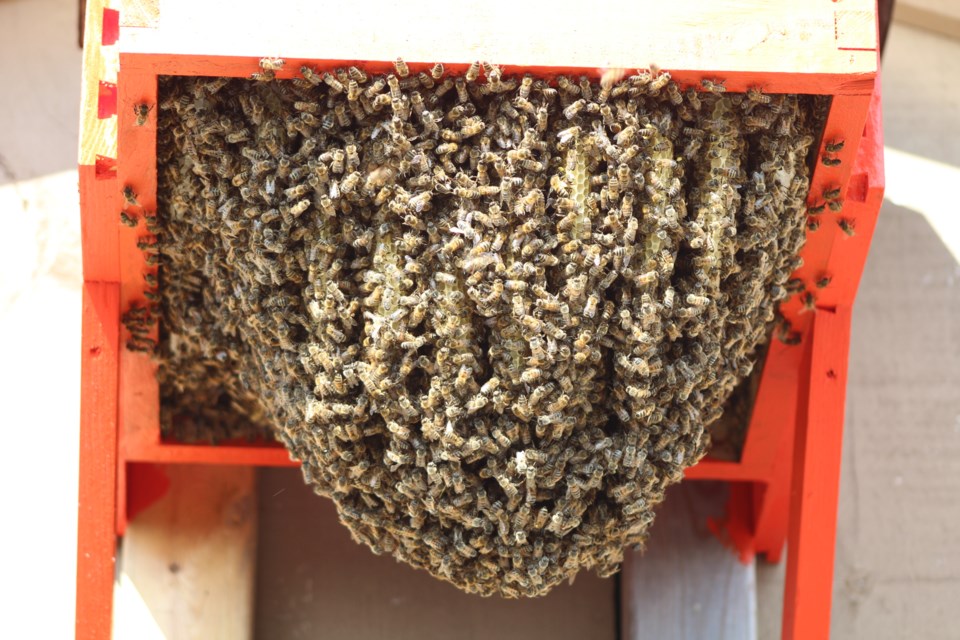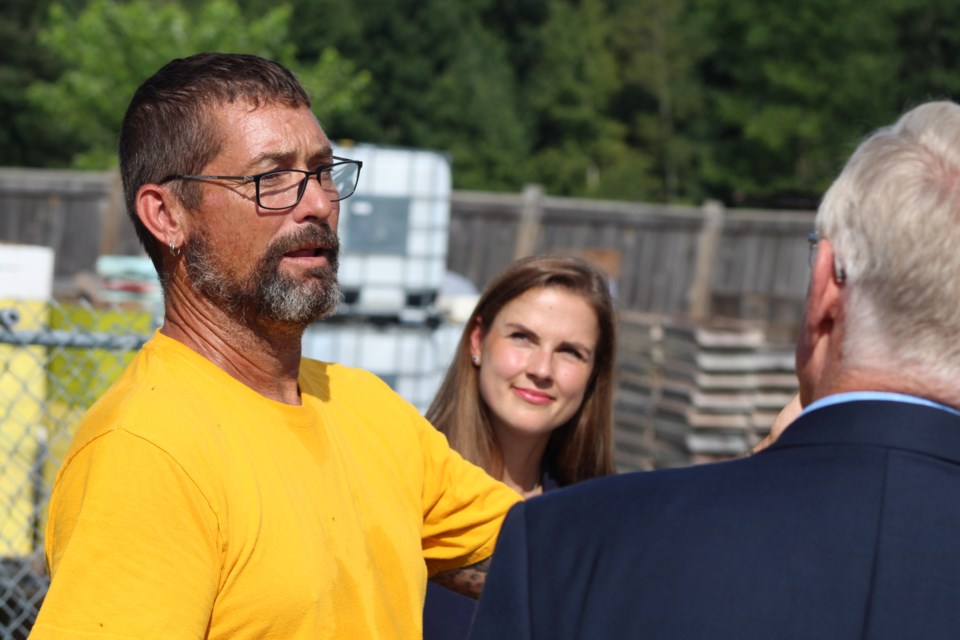Local beekeepers are buzzing with the prospect of recovery funding being made available.
The provincial and federal governments are teaming up to invest up to $10 million in two new agri-recovery programs split evenly between eligible grape growers and commercial beekeepers.
Starting this month, eligible Ontario beekeepers can apply for financial support through the Canada-Ontario Overwinter Bee Colony Loss Replacement Initiative (2021-22) to manage increased bee colony losses that occurred over the 2021-22 season.
This includes losses from severe weather and varroa mite damage, which is considered to be the primary cause of winter mortality for beekeeping in North America, including Ontario.

“Yes, the winter of '21-22 was bad and we experienced heavier than normal winter losses,” said Brian Scott, master beekeeper at Innisfil Creek Honey. “We were able to rebuild in the summer of '22."
Eligible beekeepers will receive up to 70 per cent of the high cost of purchasing bee colonies to replace those impacted during the defined time period through the Sustainable Canadian Agricultural Partnership, as announced June 22 through a news release titled Governments Helping Grape Growers and Beekeepers Strengthen Their Businesses.
According to the same source, in 2021, Ontario accounted for 25 per cent of beekeepers in Canada, with about 13 per cent of the colonies, and seven per cent of the honey production.
"The winter of 22-23 was very mild and short and the bees come out of this winter very healthy," Scott explained. "This year is the reverse of last year and the bees are doing great. I hope this coming winter is as mild as last winter."
“Beekeepers and grape growers are key contributors to Ontario’s thriving agriculture industry,” said Vance Badawey, parliamentary secretary to the minister of indigenous services and member of Parliament for Niagara Centre.
AgriRecovery is a federal-provincial-territorial disaster relief framework to help agricultural producers with the extraordinary costs associated with recovering from abnormal conditions or disaster situations. The programs are cost-shared on a 60:40 basis between the federal government and participating provinces or territories, as outlined under the Sustainable Canadian Agricultural Partnership (Sustainable CAP).
“AgriRecovery can help growers alleviate unforeseen costs out of their control, so they can continue to deliver high value to the sector," Badawey added.
"Resuming operations after disaster events can present extraordinary costs for beekeepers and grape growers," said Marie-Claude Bibeau, federal minister of agriculture and agri-food. "These initiatives will help to mitigate the impacts of these unanticipated occurrences so that these producers can recover and thrive."
In 2021, Ontario grape growers harvested 17,770 acres and marketed around 72,000 metric tonnes of grapes, worth $115 million in farm cash receipts. According to the 2021 Census of agriculture, there are more than 600 grape farms in Ontario.
Visit the websites for the Grape Growers of Ontario and the Ontario Beekeepers’ Association for more information about these key contributors.


